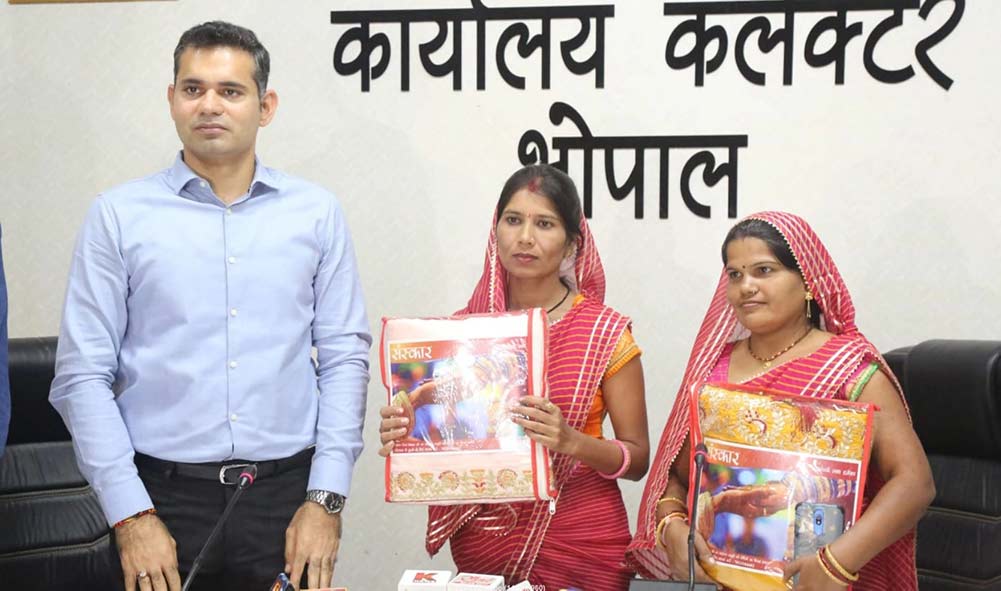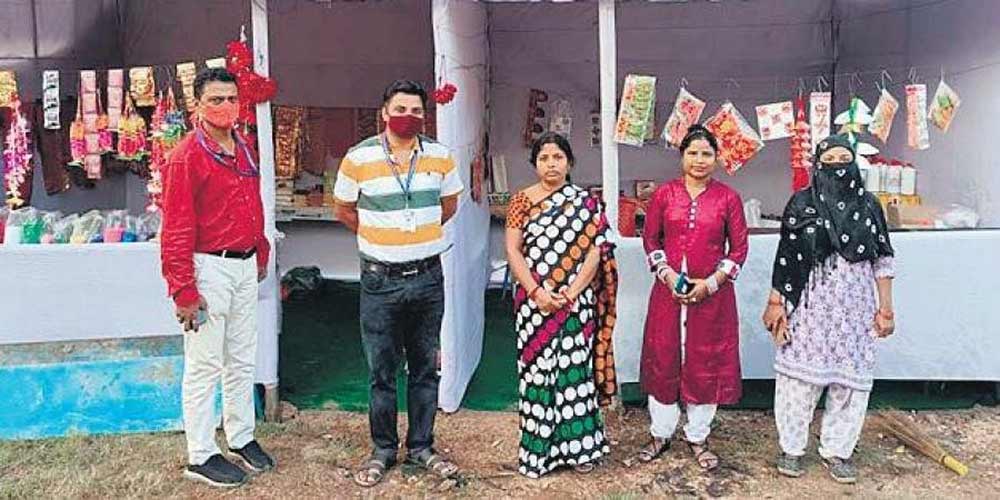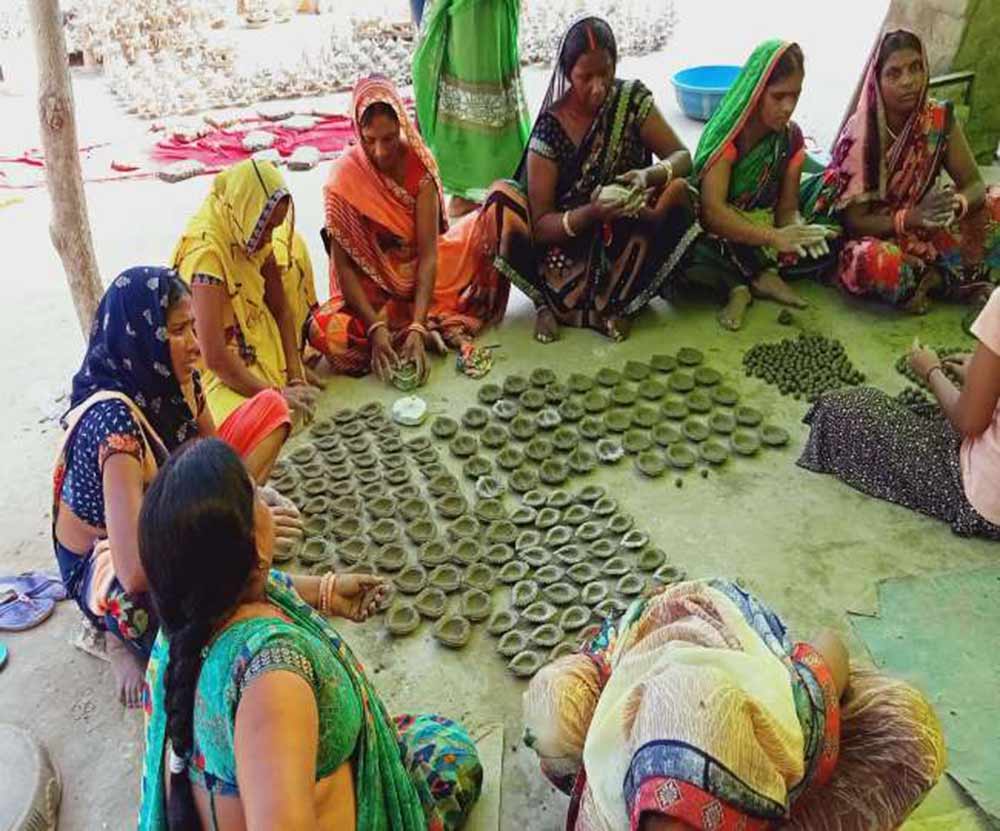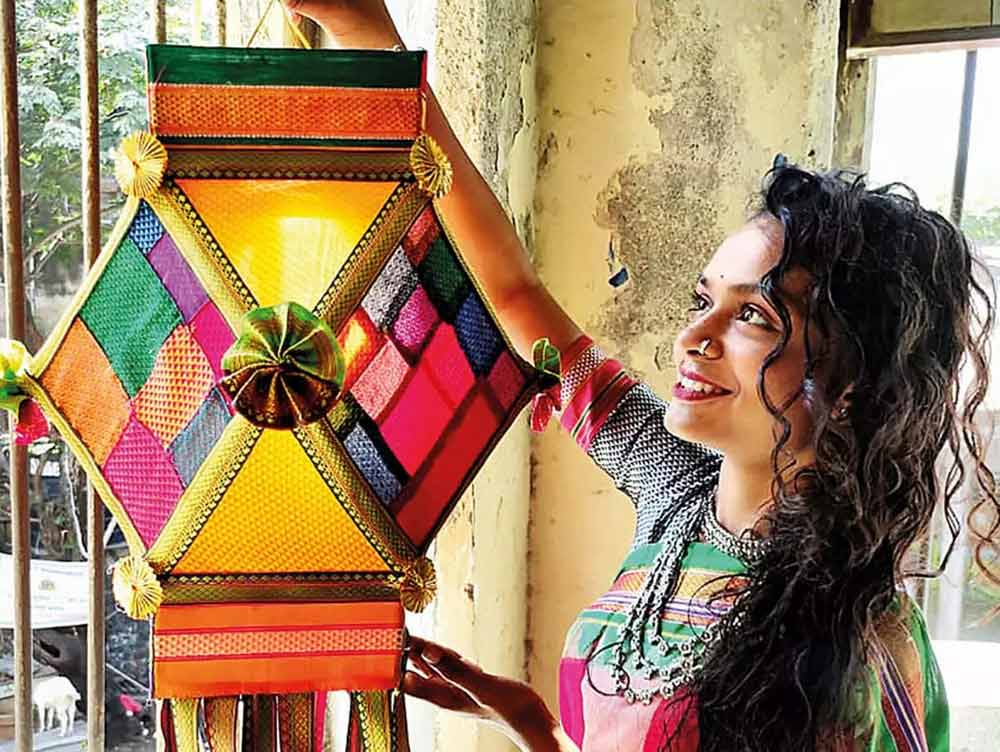Every year during the festive season, India lights up homes and hearths with lanterns, lamps and lights. Despite festivities being dampened to a large extent due to the COVID-19 pandemic in 2020, many came to realise that the need to make the celebration of festivals like Diwali more eco-friendly and sustainable is now more critical than ever before. So, in 2021, it seems that more and more initiatives for sustainable festivities are being undertaken by women across India.
In a recent video on Twitter, Smriti Irani, Union Minister for Women and Child Development, has given the clarion call of Nari Se Kharidari and Vocal For Local in a bid to urge citizens to buy sustainable festive products created by women—especially women from rural backgrounds who are using these eco-friendly methods to also earn a livelihood. Here are some such women-led initiatives from across the nation you should know more about.

Turning Waste Into Hampers
Women from villages around Bhopal, Madhya Pradesh, have prepared Diwali gift hampers by recycling discarded or waste materials. Under the initiative called Kachre se Kanchan (From Waste to Gold), the hampers prepared by these women were put on sale at the Bhopal Haat. The hampers cost only ₹1,000, and were mostly created by women belonging to local self-help groups (SHGs), Tulsi and Ganesh. The women entrepreneurs have also manufactured 500 saris under their own collective brand, called Sanskar, which will be available at Bhopal showrooms. Bhopal collector Avinash Lavania reportedly revealed that these entrepreneurial and sustainable initiatives by these women were based on the theme of Clean India Mission, and members of the Mendora village panchayat played an active role in creating the Diwali hampers.
Cow Dung Diyas To Light Up 41 Haryana Villages
To promote zero-waste and eco-friendly products made by locals, the Haryana State Rural Livelihood Mission’s Pinjore Block will light up 41 villages of Haryana’s Panchkula district with cow dung diyas. The initiative, Gaushala Aayog members revealed to TOI, is being led by women across villages who are creating a variety of products out of cow dung. Seema Devi, the cluster manager of Pinjore Block, said that the initiative is aimed at generating more employment opportunities for women, and SHGs as well as local village residents have been enlisted to make the effort a success. Other products these women make using cow dung are hawan kund, matka, and flower pots.

Odisha Women SHGs Bid For Self-Reliance
In an effort to become more self-reliant, women SHGs from Odisha’s Cuttack district have set up three stalls in the city to sell a variety of handmade festive products with the help of the Cuttack Municipal Corporation. The stalls have been set up in CDA Sector 9, Bidanasi and Shilpi Kumbhar Sahi. The handmade decorative items on sale here include earthen lamps, candles, organic rangoli colours, etc. Around 200 women associated with 18 local SHGs are involved in making these products, and are likely to benefit from the initiative this festive season.

Durable Cow Dung Diyas
Women from the village of Painal in Bihta township, Patna district, Bihar, are making thousands of cow dung diyas for sale this festive season. Under the guidance of sarpanch Babita Devi, 24 women are making around 5,000 earthen lamps every day, which they claim won’t break even if dropped from a height of 40 feet! Their aim is to not only generate more livelihood options for women, but also to make these businesses sustainable and eco-friendly. The women are also preparing idols of Lakshmi and Ganesh with cow dung, and using organic paints to colour both the lamps and the idols. Once the festive season is over, they suggest that these cow dung products be used to fertilise crops organically.

Young Mumbaikars Highlighting Indigenous Textiles
Kandeels are lanterns popularly used in the state of Maharashtra to celebrate the festival of lights, but a group of students from Mumbai are now making a sustainable version. Students of Sir JJ School of Art are not only avoiding the use of anything artificial while making these kandeels, but are also making them using Maharashtrian Khann cloth in an effort to promote local weaves while being eco-friendly. “I wanted to bring back what we have lost – these little traditions and cultures. So, we have used this special textile,” Utsavi Lahane, one of the students engaged in this initiative, told TOI. Inundated with online orders from India and abroad, the students are also trying to make these kandeels foldable so they can be easily transported.